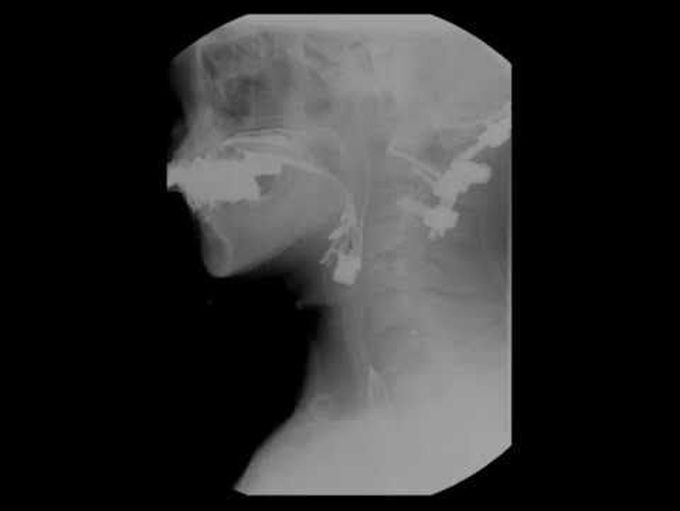


Videofluoroscopic Studies with Barium *Dysphagia after Occipitocervical Fusion *
A 64-year-old man presented with difficulty in swallowing immediately after he had undergone an operation to fuse the occiput to the cervical spine to correct atlantoaxial subluxation. Panel A shows a preoperative lateral plain radiograph, and Panel B, a postoperative radiograph. A videofluoroscopic study with barium, which was performed to evaluate the dysphagia, showed nasopharyngeal regurgitation and delayed aspiration (Video 1). Hyperflexion of the upper cervical spine decreased the occipitocervical angle, which resulted in narrowing of the oropharyngeal space. These mechanical changes can cause dysphagia after posterior occipitocervical fusion. A revision operation to adjust the occipitoatlantoaxial angle was performed 7 days after the initial operation. After the revision, the patient’s dysphagia resolved. A repeat videofluoroscopic study showed that the nasopharyngeal regurgitation and delayed aspiration were no longer present (Video 2). At follow-up 6 months after the revision operation, the patient had no evidence of dysphagia or neck pain.

